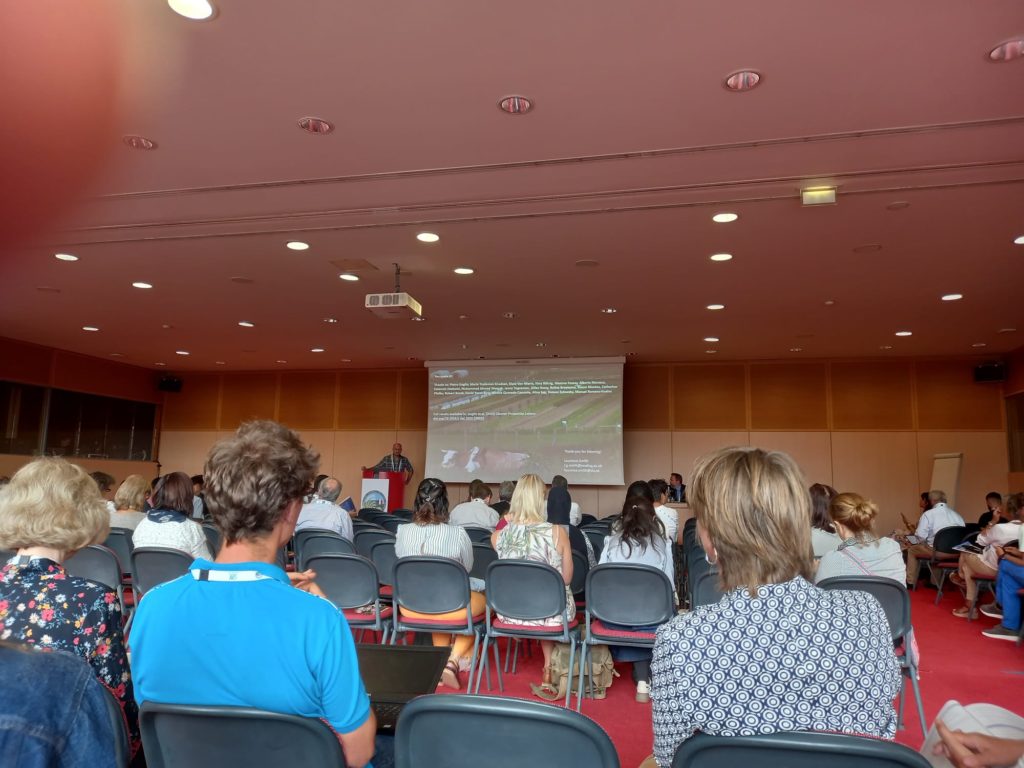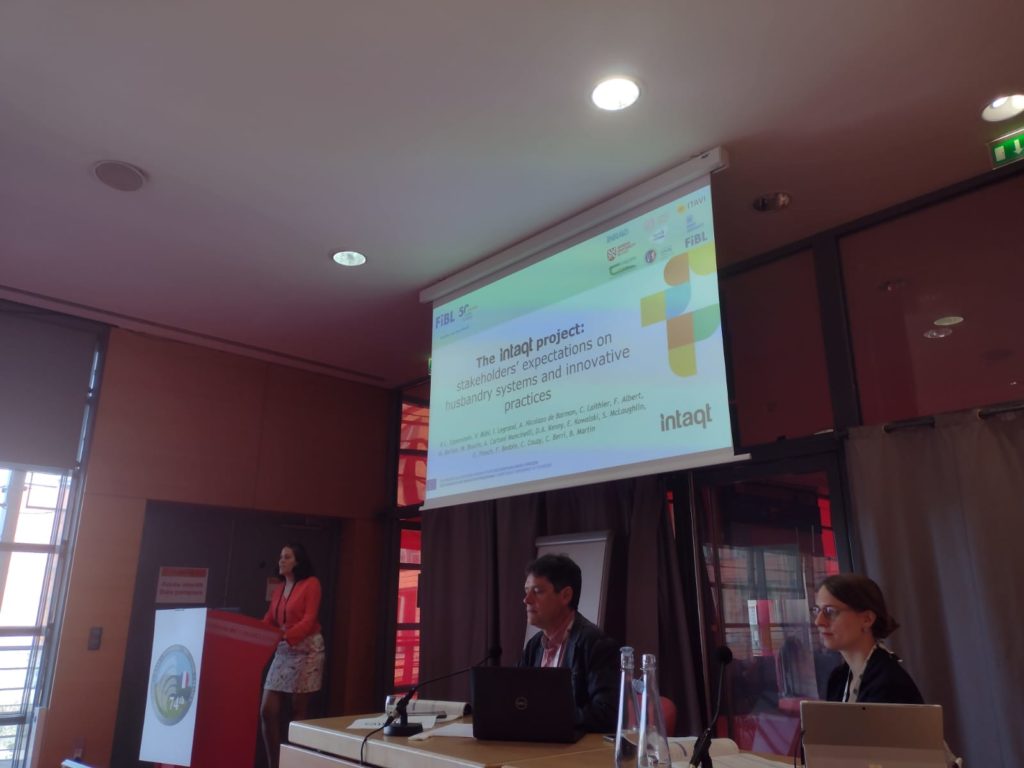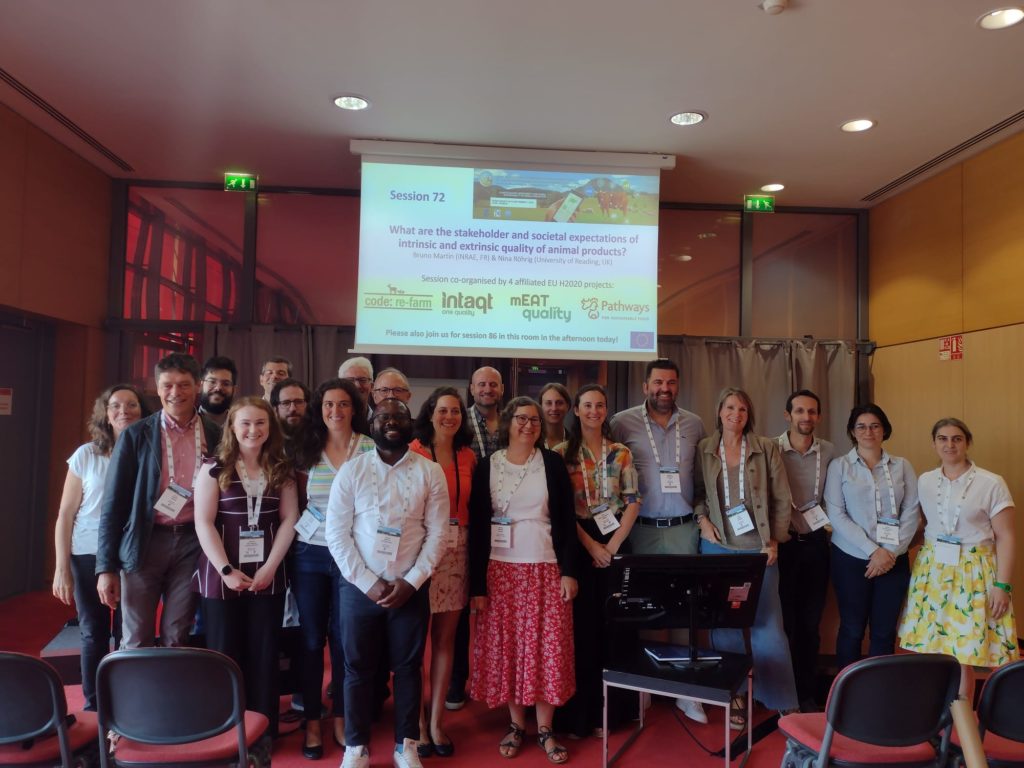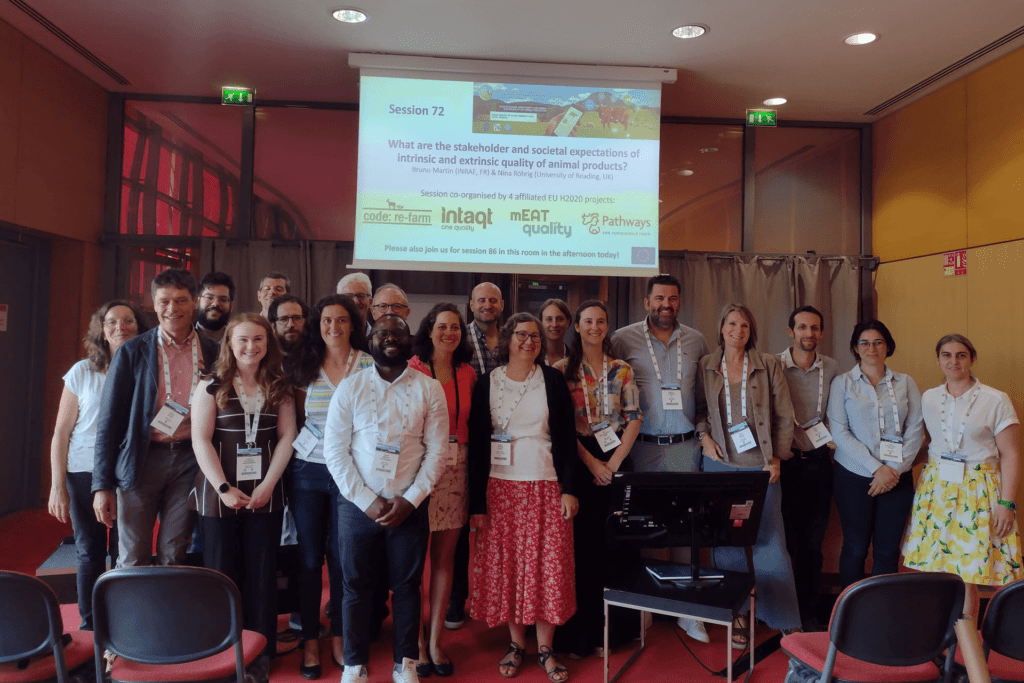Advancements in animal science and sustainable livestock practices took center stage at the 74th Annual Meeting of the European Federation for Animal Science (EAAP). Amidst a diverse array of presentations and discussions, one project stood out for its commitment to reducing environmental impacts while meeting the ever-growing demands for safe, nutritious, and affordable meat and dairy products – the PATHWAYS project.
At its core, PATHWAYS strives to transform the European livestock sector by identifying and promoting sustainable practices throughout the supply and production chains. With a resolute vision of balancing societal needs with environmental considerations, PATHWAYS aligns seamlessly with the objectives of the EU Farm-to-Fork Strategy and the EU Green Deal. Coordinated by the Swedish University of Agricultural Sciences (SLU) and boasting a consortium of 30 partners spanning 12 countries, this ambitious 5-year initiative (2021-2026) has been allocated a substantial €9 million grant through Horizon 2020.



EAAP: Bridging Science and Practice in Animal Production
The European Federation for Animal Science (EAAP), based in Rome, has long been an ardent advocate for advancing animal production through scientific research and collaboration between experts, practitioners, and breeders. What began as a European-centric endeavor in 1949 has evolved into an international platform that fosters the dissemination of research outcomes and knowledge in the realm of domestic animal farming.
During the 74th Annual Meeting of the EAAP, the PATHWAYS project made its mark with Laurence Smith, the project’s coordinator, taking the stage. Smith’s presentation centered around a crucial aspect of sustainable practices – the refinement of metrics for Life Cycle Assessments (LCAs) of livestock systems. LCAs play a pivotal role in gauging the environmental footprint of various practices and products, and the PATHWAYS project is committed to enhancing the accuracy and relevance of these metrics. Smith’s presentation shed light on the project’s innovative approaches to these assessments, promising to elevate the precision and impact of sustainability evaluations.
Joint Session: A Showcase of Progress
Projects such as Code: Re-farm, INTAQT, and mEATquality took the spotlight along with PATHWAYS with their shared mission to redefine the sector’s trajectory and hosted a joint session with several experts.
Elea Bailly-Caumette’s presentation on “How to characterize European livestock production systems” emerged as a beacon of understanding in the realm of sustainable practices. Her insights offered crucial perspectives into the foundation of responsible production, highlighting the significance of comprehending the intricate dynamics of European livestock production systems.
Dr. Nina Roehrig, representing the University of Reading’s School of Agriculture, Policy, and Development, delved into the complex interplay between EU policies and the sustainable evolution of the livestock sector. Her presentation emphasized the formidable role that policies wield in steering the sector towards a greener and more sustainable future. Dr. Roehrig’s exploration provided a valuable perspective that bridged the gap between policy and practice.
Cecile Laithier and Florence Bedoin from IDELE – Institut de l’Élevage showcased innovative approaches to consumer trust, stakeholder engagement, and sustainable practices. Laithier’s exploration through the INTAQT project emphasized integrating stakeholder perceptions into a “one quality” concept, enhancing consumer trust and emphasizing quality as a driver of positive change. Bedoin’s presentation highlighted the vital role of effective engagement in achieving sustainability, underlining collaboration as a powerful tool for aligning goals with societal and environmental considerations. Their insights collectively offer a roadmap for turning sustainable visions into actionable strategies.
Matteo Finocchi from the University of Pisa delved into the intriguing world of power dynamics within the Italian bovine sector. His presentation emphasized the profound significance of producer groups in shaping the industry’s trajectory. Finocchi showcased how these groups hold the potential to amplify bargaining power, a strategic step towards fostering a more environmentally conscious industry. By understanding and mapping these dynamics, Finocchi illuminated a potential avenue for driving sustainable change through collective action.
Rennie Eppenstein’s discourse on transitioning from intensive to dual-purpose breeds in the bovine sector signaled a significant paradigm shift. Eppenstein’s insights, in line with the “stakeholders’ expectations on husbandry systems and innovative practices” presented by INTAQT, shed light on an evolving perspective in livestock innovation. The presentation underscored the industry’s responsiveness to changing expectations and the exploration of innovative practices for a sustainable future
Finally, Carolina Reyes-Palomo shared enlightening insights from the mEATquality project, sparking discussions on environmental consciousness. Her focus on carbon footprinting in extensive pig production highlighted the project’s dedication to a sustainable approach. By unveiling results that emphasize environmental awareness, Reyes-Palomo’s presentation reinforced the critical importance of practices that harmonize with ecological considerations. Her insights showcased a commitment to responsible production.
Unveiling the Path Forward
The participation of the PATHWAYS project in the EAAP Annual Meeting underscores the convergence of cutting-edge research and practical implementation in the field of animal science. As the demand for meat and dairy products continues to rise, so does the imperative to mitigate its environmental repercussions. Projects like PATHWAYS exemplify the fusion of scientific innovation and real-world applicability, carving a pathway towards sustainable and responsible practices in the European livestock sector.
In a world where the delicate balance between feeding a growing population and safeguarding our planet’s resources is becoming increasingly critical, initiatives like the PATHWAYS project offer a glimmer of hope. With its ambitious objectives, robust consortium, and alignment with overarching EU strategies, PATHWAYS serves as a beacon of progress within the dynamic landscape of animal production.
As the 74th Annual Meeting of the EAAP draws to a close, the legacy of projects like PATHWAYS continues to illuminate the potential for a more sustainable future, one where the livestock sector can coexist harmoniously with both societal needs and environmental preservation.
